5 Essential Reasons You Should Start Wearing “House Sneakers,” Podiatrists Say
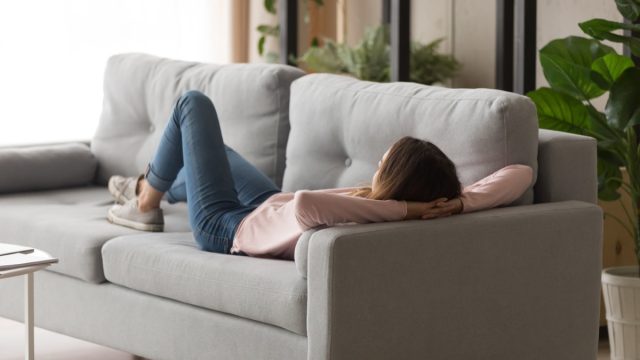
Most of us are accustomed to walking around our homes barefoot, or at most, in a pair of comfy socks. We often only slip on actual shoes right before we get ready to go outside. But you may be surprised to learn that some foot experts advise against this. Instead, they insist most everyone would benefit from having a pair of house sneakers—which are “shoes that are meant to be worn only inside the home,” Mauricio Garcia, MD, an orthopedic surgeon and the project support coordinator for Hyper Arch Motion’s orthopedic sneakers, tells Best Life.
“Usually made from lightweight materials such as wool or linen, house shoes feature thin soles that provide comfort and cushioning indoors, but are not thick enough to adequately protect feet should they be worn outside,” Garcia explains.
Wondering if you need to invest in inside-only footwear? Read on to find out why experts say you need a pair of house sneakers.
RELATED: 4 Types of Sandals You Should Never Wear After 60, Podiatrists and Stylists Say.
1
They help you avoid developing deformities.
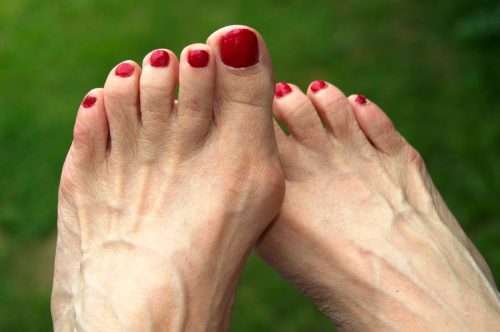
Bunions and hammertoes are two of the most common foot conditions that can form if you’re not properly taking care of your feet. Besides being painful, these types of deformities may also end up requiring surgery to fix. So if you don’t want to deal with potential pain or costly medical procedures, Garcia recommends getting a pair of house sneakers.
“If you are already prone to bunions and/or hammertoes through family history, over time, walking on hard surfaces like wood, tile, or concrete floors without protection can cause these conditions to worsen substantially,” he explains. “By keeping feet aligned correctly when walking, wearing house shoes helps to avoid the advancement of both bunions and hammertoes.”
RELATED: 5 “Comfortable” Shoes That Are Actually Bad for Your Feet, Podiatrists Say.
2
They are better for your long-term foot health.
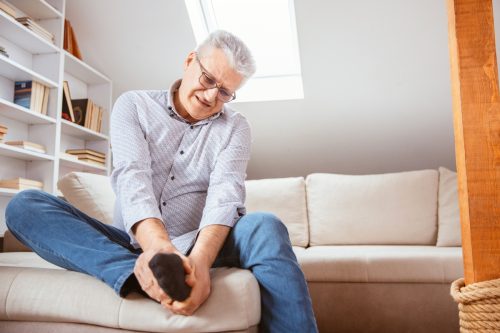
House shoes do far more than just help you to avoid foot deformities, however. As Garcia explains, walking barefoot on hard surfaces throughout the home is bad for your foot health overall—and you can end up developing a slew of long-term problems like “plantar fasciitis, collapsed arches, and flat feet.”
“Because your arches help you do everyday things like standing, walking, and running, arch support is crucial,” Garcia says, noting that house sneakers with built-in arch support can help provide the cushioning you need to ensure optimum foot health over time.
3
They can provide protection for your feet indoors.
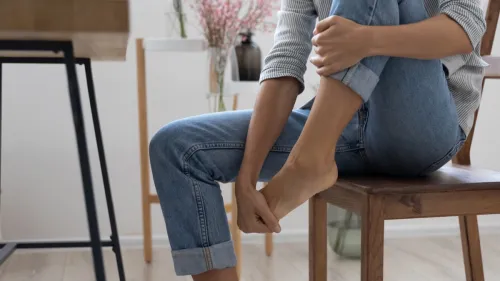
You might not realize it, but there are many small hazards inside your home that can cause harm to your feet. But house sneakers serve as a protective barrier from potential problems like “stubbing your toe on furniture or stepping on sharp objects,” according to Kezia Joy, MD, a medical expert working for the UK-based healthcare platform Welzo.
“The soft soles of house sneakers provide a layer of cushioning, minimizing the impact and reducing the chances of injury,” she explains.
RELATED: 6 Tips for Wearing Flats If You’re Over 60, According to Stylists and Podiatrists.
4
They also help to prevent other potential injuries.
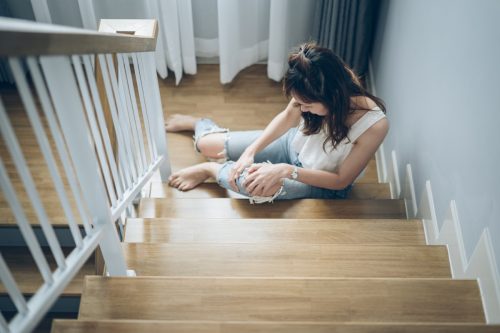
Not wearing shoes inside your home doesn’t just put you at risk of a small toe-stub. As Joy explains, many house sneakers have non-slip soles and grip patterns that help increase your traction on smoother indoor surfaces.
“This feature can help prevent accidental slips or falls, especially on polished floors or when walking on wet areas like bathrooms or kitchens,” she says.
This stability makes house sneakers a safer option than socks when it comes to walking around the house—especially if your home has wood, concrete, or tile floors, according to Garcia.
“Slipping and sliding on these types of surfaces is very common, especially on stairs, which can be dangerous if you fall,” he warns.
For more wellness content delivered straight to your inbox, sign up for our daily newsletter.
5
They’re more hygienic for your home.
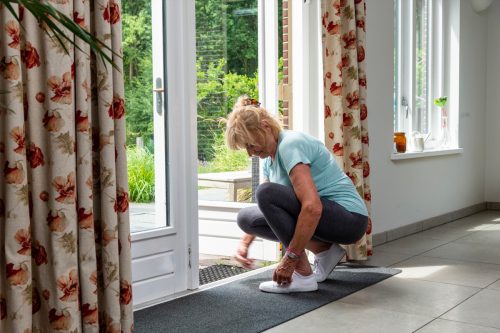
You might be tempted to just start wearing your normal everyday sneakers inside your home to protect your feet. But having a separate, indoor-only pair is also important for general hygiene reasons.
“If you wear your outdoor shoes inside, then whatever you’ve stepped in or walked through outside comes with you into your home,” Garcia explains. “Immediately changing into house shoes lessens your ability to track bacteria, germs, viruses, or pollen through the house and ultimately lessens the chance of you coming into contact with something that could make you sick.”